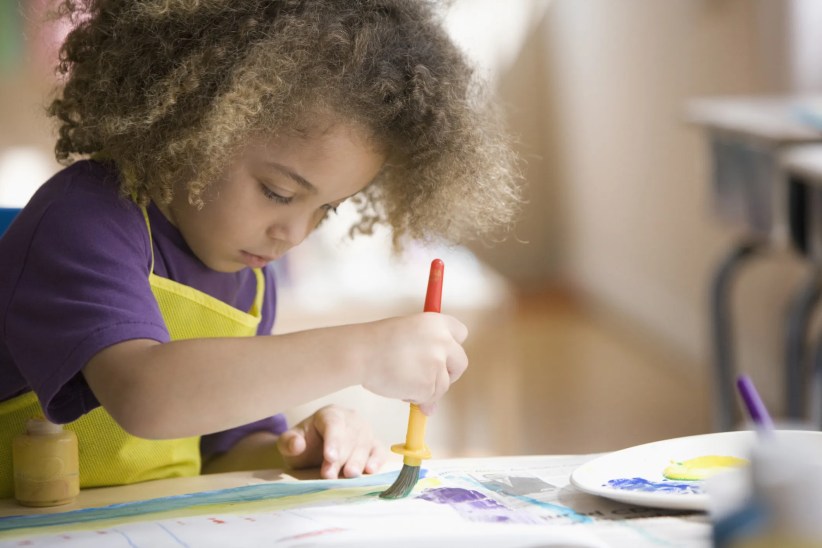With the barrage of media telling kids their value is in their looks, we often wonder when to talk to them about body image and self-esteem. Hint: Now.
Many parents of teens and tweens are shocked the first time they hear their daughters utter these words. Sadly, girls are becoming body conscious even younger than that these days, which is why parents need to start the conversation about body image now. For girls, their bodies is a sensitive subject, and yet if we avoid the conversation, we make their changing figures a source of shame, especially as they approach and experience puberty.
Emily, a New Rochelle 11-year-old, often makes remarks about how fat she is and she often compares how much she weighs to other girls in her grade. “I’m not sure if she’s saying it because she means it, or if she’s saying it because she feels like she’s supposed to say it since she’s not a size zero,” says Lauren, Emily’s mom. “She sometimes comes across as apologetic because she’s not as thin as a rail.”
Beauty Expectations from Society
Young females are berated daily by advertisements, magazine covers, and television shows, all with the same message: Girls’ primary value is their appearance. And even before finishing elementary school many girls have already “learned” that they are “supposed” to be tall, extraordinarily thin (thighs shouldn’t touch), with long, straight hair and flawless skin. And we wonder why statistics show that 80 percent of 10-year-olds have been on a diet. We need to send them positive messages before they start worrying about their bodies.
One mom told me, “I noticed that my fourth-grader and her friends were already sucking in their stomachs at the pool this summer.” Another mom told me that she found a group of fifth-grade girls gathering in her bathroom to weigh themselves during a birthday party. “These girls don’t know what it’s like to have fun without worrying about their appearances anymore,” she says.
And while girls are three times more likely than boys to have a negative body image, more and more young men are becoming consumed with how they look. They feel pressured to fit a certain physical ideal, too. It’s important to note that boys are flooded with images of toned and muscular males and this can be as harmful as the media’s depiction of what girls should look like.
“Parents need to start the conversation about body image as early as possible,” says Anne Wennerstrand, LCSW-R, a psychotherapist in private practice in Katonah who works with teens and parents to treat and prevent eating and body image problems.
RELATED: How to Recognize Signs of an Eating Disorder
Getting to the Root of Body Image Issues
Asking questions is more important than just telling your daughter that she isn’t fat and that she should just feel good about herself, Wennerstrand says.
“We need to ask ‘What does the word fat mean to you?’ or ‘Did something happen at school today to make you feel this way?’,” says Wennerstrand, who is also on the faculty of The Women’s Therapy Centre Institute in Manhattan. “Parents need to emphasize how important it is for kids to feel ‘peaceful’ in their bodies instead of ‘good’ about their bodies. Our bodies are constantly changing and the concept of being at peace with themselves is an idea that can carry through puberty and other stages of life.”
“When someone says she feels fat, she may be feeling bad about herself in some way that has little to do with fat. Fat is not a feeling, it is a substance. It was a wise mother who said to her daughter, ‘You must be feeling bad about yourself. What is it you are feeling bad about?’,” says Sharon K. Farber, Ph.D., who practices psychotherapy in Hastings-on-Hudson and specializes in eating disorders and body image problems.
RELATED: Find Mental Health Professionals Near You
Building Body Image Self-Esteem
There is no single strategy to ensure that our daughters will feel good about themselves and maintain a normal weight, but there are some general principles.
|
And finally, it’s important to stay connected to your daughter during the seemingly awkward adolescent teenage years. Don’t avoid talking about natural weight gain, periods, and bras and treat her differently when her body changes.
RELATED: Find Nutritionists Near You





















